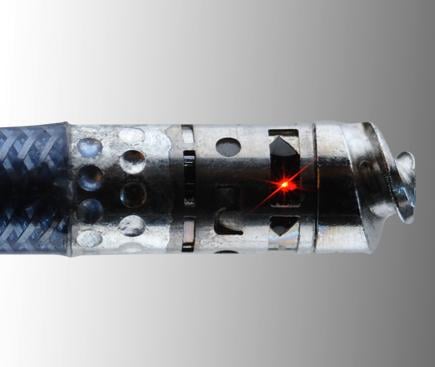
March 9, 2012 — Avinger Inc. announced the enrollment of the first U.S. patient in the CONNECT II global clinical trial evaluating the safety and efficacy of Ocelot. The device is the first chronic total occlusion (CTO) crossing catheter using forward-looking optical coherence tomography (OCT) to treat patients with peripheral artery disease (PAD).
The first patient was enrolled by Ian Cawich, M.D., of Arkansas Heart Hospital. This announcement comes two weeks after Dr. Bernhard Reimers enrolled the first European patient in the CONNECT II trial at Ospedale di Mirano in Mirano, Italy.
Currently CE marked, Ocelot is designed for crossing completely blocked arteries, or chronic total occlusions (CTOs), in the legs while simultaneously using OCT to navigate inside the arteries.
“We hope that physicians using Ocelot can now help prevent even more leg amputations in people suffering from PAD,” said Avinger founder and CEO John B. Simpson, Ph.D., M.D.
The Ocelot catheter uses OCT technology as a navigation tool with the goal of traversing CTOs more safely and effectively as part of a procedure to restore blood flow back to normal in the legs. It allows physicians, in real time, to see what’s happening inside the arteries during the actual intervention, giving patients a better chance to receive the best treatment possible during a single hospital visit.
“We are participating in CONNECT II because our patient, if treated with other current options on the medical market, could face amputation and death,” said Cawich. “With Avinger’s Ocelot, we believe this patient can be saved right now from both.”
For more information: http://avinger.com


 January 05, 2026
January 05, 2026 









